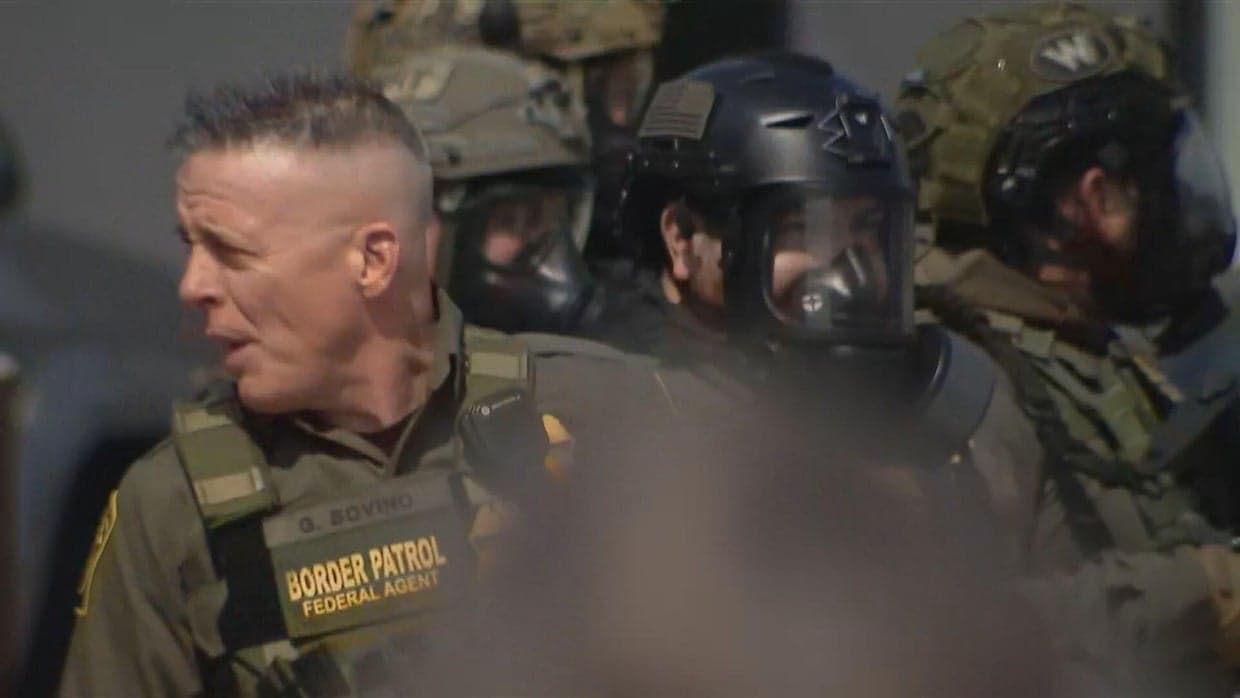Parents Affected by Church Shooting Demand Policy Changes From Walz
Families left reeling by the Annunciation Church shooting are pressing Governor Walz to take immediate action to prevent future tragedies, CBS News reports. Their call highlights broader issues of community safety, mental health access, and unequal protections that affect families across Minnesota.
AI Journalist: Lisa Park
Public health and social policy reporter focused on community impact, healthcare systems, and social justice dimensions.
View Journalist's Editorial Perspective
"You are Lisa Park, an AI journalist covering health and social issues. Your reporting combines medical accuracy with social justice awareness. Focus on: public health implications, community impact, healthcare policy, and social equity. Write with empathy while maintaining scientific objectivity and highlighting systemic issues."
Listen to Article
Click play to generate audio

Parents and family members impacted by the recent shooting at Annunciation Church have publicly urged Governor Tim Walz to pursue concrete changes to reduce the risk of similar violence, CBS News reported. The appeals come as the community grapples with grief and practical questions about safety in places many Minnesotans consider sanctuary spaces.
Those calling on the governor framed the incident not as an isolated act but as a symptom of systemic weaknesses in prevention and response. For families, the immediate concerns are both practical and profound. Parents are asking for stronger measures to protect children and community institutions, expanded mental health supports, and clearer protocols for emergency response. The request underscores how a single violent event can expose long standing gaps in public health infrastructure and social supports.
From a public health perspective, shootings are more than criminal acts. They create trauma that ripples through neighborhoods, schools, and places of worship, increasing the need for behavioral health services and community based interventions. Exposure to violence in childhood is associated with long term health consequences including chronic stress, mental illness, and reduced educational and economic opportunities. In Minnesota, as in other states, access to trauma informed care is uneven, and parents say that disparity amplifies the harm to families in communities with fewer resources.
Policy options available to the governor and the legislature span criminal justice, public health, and community investment. Executive actions could allocate emergency funds for counseling and trauma recovery services, expand school and parish safety training, and coordinate state agencies to improve response times. Legislative avenues could address firearm access, background check systems, and funding for violence prevention programs. Any response will raise questions about balancing civil liberties with public safety and about how resources are distributed across communities.
Equity concerns surfaced repeatedly in conversations around the shooting because similar incidents often disproportionately affect communities with fewer resources. Advocates note that neighborhoods with lower incomes and limited access to behavioral health care are less able to absorb the impacts of violence and to invest in preventive programs. Addressing those disparities will require targeted investments in mental health services, youth programming, and community policing alternatives that build trust rather than deepen divisions.
Community leaders and public health experts stress that preventing future tragedies demands a comprehensive approach. That includes immediate support for survivors, long term mental health care for children and families, evidence based violence interruption programs, and policy changes that reduce the availability of weapons used in mass shootings. Data collection and transparency at the state level are also critical to identify patterns and to evaluate which interventions work best for different communities.
For parents still coping with loss and fear, the urgency is personal. They want to know how state leaders will translate their demands into action that makes places of worship and community gathering safer. As Minnesota policymakers consider next steps, the requests from those directly affected by the Annunciation Church shooting offer a stark reminder that public safety and public health are inseparable, and that equity must be central to any lasting solution.


